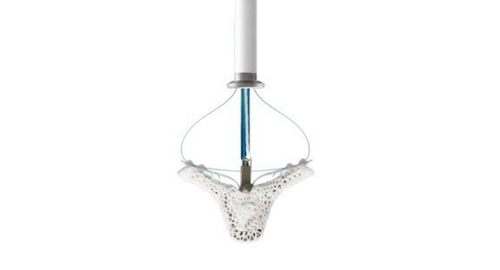
June 9, 2022 – Abbott announced late-breaking data for MitraClip™, the world’s first transcatheter edge-to-edge repair (TEER) device, and TriClip™, a first-of-its kind minimally invasive tricuspid heart valve repair device. The data reinforce the capabilities of the company’s structural heart solutions for both mitral and tricuspid regurgitation (MR and TR) across a broad range of patient groups battling leaky heart valves.
Historically, treatment options for MR and TR have been limited. Prior to MitraClip and TriClip, open-heart surgery was the only treatment for these conditions, but not all patients were eligible due to the potential risk of complications stemming from comorbidities, advanced age or other issues.
The global EXPAND study is the largest contemporary, real-world study of MitraClip NTR/XTR that used an independent echo core lab and clinical events committee. The analysis of one-year clinical and functional outcomes demonstrates the benefit of MitraClip in secondary MR patients both within the eligibility criteria for Abbott’s COAPT trial – which studied symptomatic heart failure patients with moderate-to-severe or severe secondary MR – and outside COAPT eligibility, including patients with moderate at baseline MR and patients with advanced heart failure. The data across all patient groups through one year showed:
- Significant MR reduction to ≤1+ MR (81.3%-97.2%)
- Improvements in New York Heart Association (NYHA) class (a classification of functional limitations resulting from cardiac disease) and quality of life from baseline
- Comparable all-cause mortality and heart failure hospitalization rates
Patients with TR who are candidates for transcatheter repair commonly have a pacemaker lead across the tricuspid valve. Combined outcomes from the TRILUMINATE and bRIGHT prospective, single arm, multi-center trials examined whether TR patients previously implanted with a pacemaker lead can benefit from the TriClip device and is the first report focusing on this group. In patients with TR and a pacemaker lead across the tricuspid valve, the following 30-day results of the TriClip and TriClip G4 TEER systems were demonstrated:
- High rate of implant (98%) and acute procedural (91%) success
- At least a two-grade TR reduction in 64% of patients
- Life-changing clinical improvements including 69% of patients achieving NYHA Functional Class I/II, an improvement by 57% from baseline of 12%, with a marked 19-point improvement in Kansas City Cardiomyopathy Questionnaire (KCCQ) score (a self-assessment of symptoms, physical and social limitations, and quality of life in patients with heart failure)
